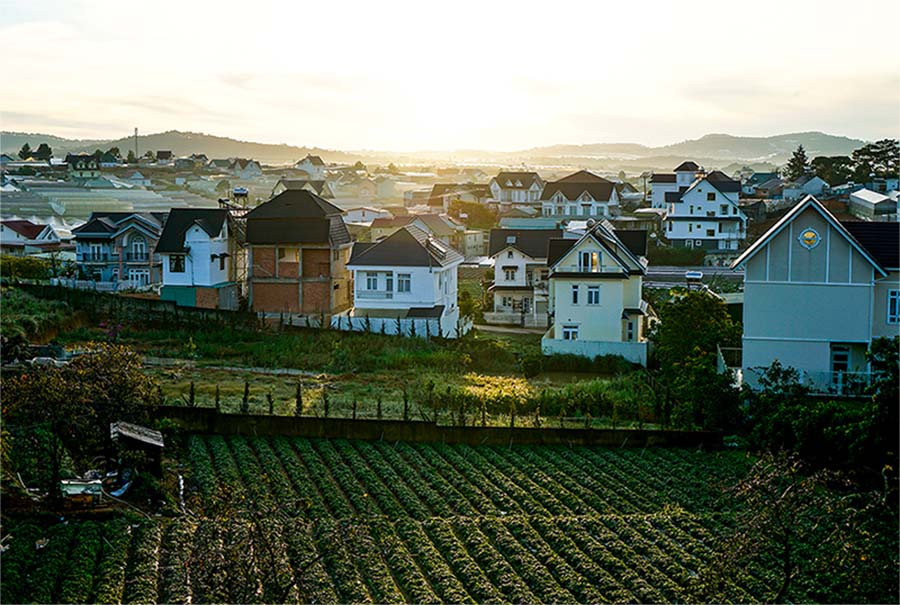Thirdly, establishing robust environmental monitoring and enforcement mechanisms is a crucial step. Implementing real-time monitoring of environmental changes, water quality, and air pollution levels will provide invaluable data for informed decision-making. Additionally, strictly enforcing environmental regulations and imposing penalties for violations will serve as a powerful deterrent against destructive activities while cultivating a culture of responsibility among residents and businesses.
Fourthly, Dalat's journey towards sustainability encompasses a vital transformation in agricultural practices. Embracing organic farming and agroforestry will prove instrumental in minimising the negative impact on precious natural resources. Encouraging responsible greenhouse management and promoting sustainable agriculture will, in turn, significantly contribute to environmental preservation.
Fifthly, enhancing green spaces and preserving biodiversity is imperative in this mission. By expanding green spaces within Dalat, the city will safeguard its rich biodiversity, creating recreational havens for its residents, enhancing air quality, and promoting overall well-being. Furthermore, establishing protected zones and wildlife corridors will provide crucial sanctuaries, fostering the region's unique flora and fauna, and ensuring their survival for generations to come.
Lastly, investing in climate resilience is an urgent imperative for securing Dalat's future. As the United Nations has recently sounded the alarm on the looming era of “global boiling,” Dalat must take proactive measures to prepare for the inevitable effects of climate change. The city must adapt and safeguard its precious natural assets from global warming rising.
To weather the intensifying impacts of climate change, Dalat must prioritise strategic investments. Implementing robust flood mitigation systems, erosion control measures, and comprehensive water management plans will prove crucial in fortifying the city against the ravages of an unpredictable climate. Through these proactive measures, Dalat can shield its environment and people from the potentially catastrophic consequences of climate-related events.
By heeding the warnings and responding with action, Dalat can emerge as a resilient and adaptive city, standing strong amidst the tumultuous climate challenges of the future. Together, we can ensure a future where Dalat's natural beauty thrives, standing as a testament to the enduring power of mindful stewardship.
Story by: Dr Daisy Kanagasapapathy and June Pham







